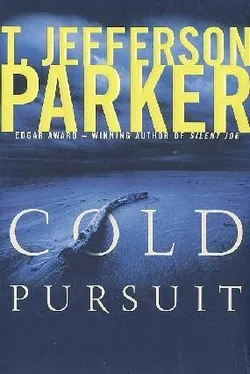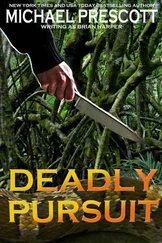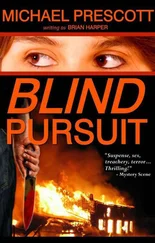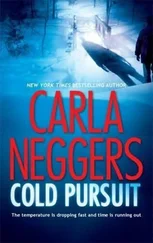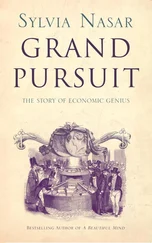McMichael had seen enough die-hard joggers to figure that running in the rain- especially a warm September rain- wasn't that unusual. What caught his eye next was not the jogger, but Kyle Zisch's job and place of employment: "bird handler at San Diego Wild Animal Park."
Boom again.
Maybe Zisch had been the jogger, McMichael thought. It wasn't unusual for a smart young creep to toy with the cops. McMichael wondered if "case" was Zisch's word or the detective's. Maybe the helpful Zisch had a thing for easy marks, late nights, blunt objects, rain. It would be easy enough to pick up a yellow feather on the job, get it caught on a sweater or coat or cap, leave it behind accidentally. Maybe even leave one at the scene on purpose, for the fun of it. There was nothing in the Appleton murder book about feathers.
McMichael ran a records check on Zisch but he came back clean. No prints on file with the PD, the state or FBI, either. McMichael wrote down Zisch's LKA and phone number, and made a note to ID the feather.
***
While the VICAP pages printed out, he looked at the pictures of Johnny again and figured the days until he'd see him. Two. Last night, Wednesday, had been a father-son night, but McMichael had dropped Johnny off at home early because his boy wasn't feeling well. The weeknights were pretty brief, anyway: they could bang out the homework then have time for dinner, maybe a walk and a movie or TV. McMichael always tried to do too much on Johnny days, tried to get a week's worth of living into a few waking hours. Johnny was a beautiful boy and the apple of McMichael's eye and his heart broke a little every time he thought of how they had torn his young life in two. Only seven years old.
It was dark outside now but the rain had stopped. A poststorm wind came steady from the west. The lights of downtown were staunch in the darkness before him.
McMichael had grown up just a few blocks from here and had been seeing this view, adjusted for progress but the same in its essentials, for all of his thirty-eight years. He loved the city. Loved the curve of the Coronado Bridge and the hard optics of ocean and glass and concrete, and the stout old downtown buildings and the spikes of the big hotels by the water. He loved the busy muscle of the shipyards and the tremendous vessels of the Fifth Fleet, and the navy installations that claimed so much of the city- cities within the city- closed and self-sufficient and forbidding. He loved the bars and streets of the Gaslamp, so crowded and chaotic with pretty women on warm summer nights. He even loved the huge cemetery out on Point Loma, where his great-great-uncle, killed in France in the Great War, shared a Pacific-side grave with the wife who outlived him by six decades.
But even more than all of that, he loved his son. Johnny was born in this city. He was the city made flesh. Until McMichael had become a father he had no idea that the hugeness of a city could be contained in the smile of a boy. He'd learned that the tremendous, unshaped powers within a man's heart- love, loyalty, gratitude, joy- could become specific with the birth of a child. Everything he had felt, made real.
It was all worth protecting.
Spellacy's was quiet when McMichael walked in at six that evening. Hugh stood behind the polished redwood bar, drying glasses. Four men huddled on the stools, conversing with the patient, collegial energy of drunks. McMichael's father was among them. His smile went big when he saw his son. McMichael sat beside Gabe at the end of the bar, by the olives and onions and lemon rinds.
"You've been busy, I bet."
"We got Pete."
"So your sister told me. I hear the nurse was covered in blood."
It always surprised McMichael how much Raegan learned at the Libertad Cigar Factory & Lounge. And what Gabe picked up from his stool at Spellacy's Pub. Put them together, you had a CIA for the streets of San Diego.
"It wasn't the nurse," said McMichael.
"I could have told you that, son."
"What else can you tell me, Pop?"
"It was Pete's enemies is who it was. But he had so many, you know, so it's hard to say which."
They took a booth near the back for dinner. Hugh brought them pints and stew and a loaf of bread and butter. Gabe ate like he hadn't had a meal in two days, which was entirely possible. In McMichael's estimation, his father was one step away from being a danger to society, and was already a certifiable danger to himself. McMichael had no idea how his mother had borne his father, other than quietly.
"What I figure is the new airport," said Gabriel, dipping bread into the stew. "Pete was Port Commission, now wasn't he? And Port Commission controls all the bay and the land around it. They control the airport. Every time money changes hands at the airport, Pete's Port Commission gets some of it. But there's people trying to build a new airport. Bigger and better and very damned expensive, you can bet. The state makes up this new Airport Authority to oversee the idea of a new airport. The city and the business types, they're all for it like you'd figure, but Pete and the Port Commission, they're trying to keep the old airport up and working, right where it is. Then, a few months ago, Pete starts making noises about letting the new Airport Authority take over Lindbergh Field, close it down and build the new one. Some of the Port Commission people aren't happy. They think Pete's switching sides and they can't figure out why."
"So, why did he?"
"Because he would have profited from it, mark my words. And I'll tell you this, the Tunaboat Foundation, they were pissed at him, too, because the old airport leases thirteen acres from them. Thirteen expensive acres, right between the terminals and the harbor. That's foundation land. And if the airport moves, they lose a fat and easy paycheck."
McMichael remembered reading just a few weeks ago of the heated debate on the new airport, the way the powerful Port Commission might be coming around to the idea of a new airport that would be outside their immediate control.
"Wasn't Pete on the Tunaboat Foundation board?" McMichael asked.
"He was the foundation, Tommy. And he was telling them one thing but planning another."
McMichael thought about it. People were murdered for less substantial reasons than the ones his father was suggesting. Hundreds of millions of dollars were at stake, and if you factored in jobs and power and politics- the stakes went up even higher.
Gabriel's pale blue eyes glimmered as he looked at his son. "Which is exactly what Pete pulled on your grandfather Franklin."
Here we go again, thought McMichael. Thirty-eight years and he knew the speech by heart.
"It's the Portugee way of doing things, Tom. They lie to you. The Irish, we tell you right up front what the deal is. And you can take or leave it. Not the Portugee. They're like gangsters that way."
McMichael nodded along, staring at the poster on the wall that featured a leprechaun cocktail maid. She was offering him a tray of creamy-headed stouts. She was scantily clad, big-eared, exceptionally pretty and ridiculous. He'd come to believe that the Irish were their own worst promoters, though he'd always liked the picture. The cocktail maid became Sally Rainwater, and he looked away.
"So what if I say the same thing over and over, Tommy? In case you're curious, I was right here that night. Ask Hugh, he'll set you straight."
McMichael hadn't thought of his father as a suspect, though Gabriel was passionate, vengeful and unpredictable. "Who were Pete's partners on the Tunaboat Foundation?"
"How would I know? But I do know that some of them like Raegan's cigar club- so says Raegan. They're regulars. Not Pete, though. Your sister, she'd throw him right back onto the sidewalk he came in on."
Читать дальше
